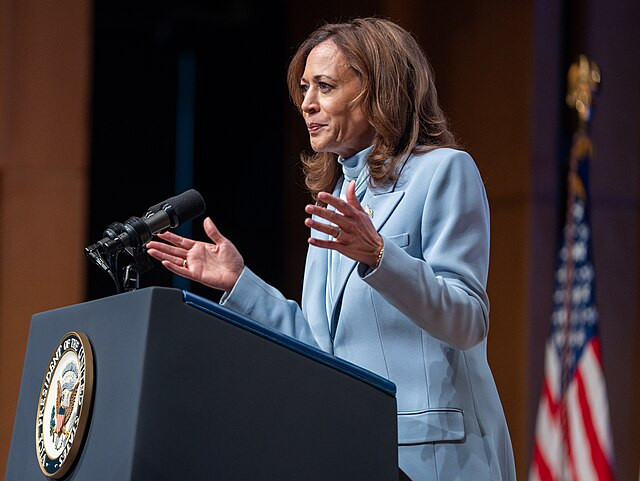Vice President Kamala Harris, in a final campaign speech before the 2024 election, drew a sharp distinction between her vision for the country and the policies of her opponent, former President Donald Trump. Speaking to a crowd at the Ellipse, near the White House, Harris framed the election as a pivotal choice between hope and unity on one hand, and division and chaos on the other.
"These United States of America, we are not a vessel for the schemes of wannabe dictators," Harris declared to a massive crowd, emphasizing the stark difference between her leadership approach and Trump's. "The United States of America is the greatest idea of humanity ever devised," she said, portraying the nation as resilient, capable of overcoming internal conflicts, and bold enough to envision a future full of possibilities.
Harris' speech came just days before Election Day, during a campaign season defined by deep political divides and rising tensions. She spoke directly to voters, contrasting her policies with those of Trump, while acknowledging that many Americans are still getting to know her as a leader. "My presidency will be different from Joe Biden's because the challenges we face will be different," Harris said, underscoring the need for forward-thinking leadership. The vice president's remarks aimed to draw in voters who may still be undecided, especially those feeling fatigued by years of political polarization.
One of the most symbolic moments of Harris' speech came when she reminded the audience that the Ellipse, where she was delivering her address, was the very place where Trump held a rally on January 6, 2021, just before an armed mob stormed the U.S. Capitol in an attempt to overturn the results of the 2020 election. She didn't shy away from addressing the attack, reminding voters that it was not just an attack on a building, but an assault on democracy. "He sent an armed mob to overturn the will of the people," Harris said, making clear her belief that Trump's leadership had endangered the country.
In her speech, Harris sought to position herself as a unifying figure, pledging to find common ground. "The fact that someone disagrees with us does not make them the enemy within," she stated, implicitly challenging Trump's divisive rhetoric. "When elected, I will walk into the Oval Office with a to-do list for the American people," she continued, contrasting her approach with Trump, who she claimed would return to the White House with "an enemies list."
Harris repeatedly accused Trump of seeking power for personal gain, not for the benefit of the country, and framed his return to power as a threat to democracy itself. "He wants to put [his opponents] in jail. I will give them a seat at the table," she said, highlighting her commitment to inclusivity and bipartisan cooperation.
While Harris presented herself as a unifier, Trump's team quickly labeled her rhetoric as divisive. Trump's national press secretary, Karoline Leavitt, claimed Harris was lying and deflecting blame from her own policies. "Kamala Harris is lying, name-calling, and clinging to the past to avoid admitting the truth," Leavitt said, accusing the vice president of stoking fear to distract from her administration's handling of key issues like inflation and immigration.
Despite the political sparring, Harris continued her appeal to undecided voters, particularly those who may be disillusioned by the state of American politics. "I pledge to seek common ground and common sense solutions to make your life better. I am not looking to score political points. I am looking to make progress," she assured the crowd, emphasizing her goal to govern for all Americans, not just her base.
As the election draws near, Harris faces the task of convincing voters that she offers a path toward a better future, one that rejects Trump's brand of populism and embraces a more inclusive and pragmatic approach. "It is time to turn the page on the drama and the conflict, the fear and division," she said in her closing remarks. "I am ready to offer that leadership as the next president of the United States of America."
The Ellipse event, broadcast on major networks like CNN and MSNBC, as well as covered in part by international outlets like the BBC, drew a large audience, with the Harris campaign estimating over 75,000 attendees. Whether Harris' final appeal sways enough voters in what is expected to be a close race remains to be seen.






